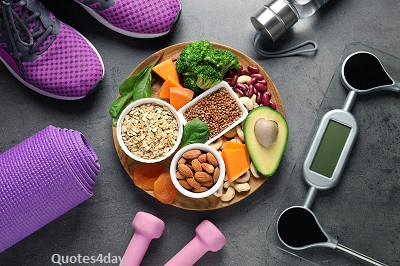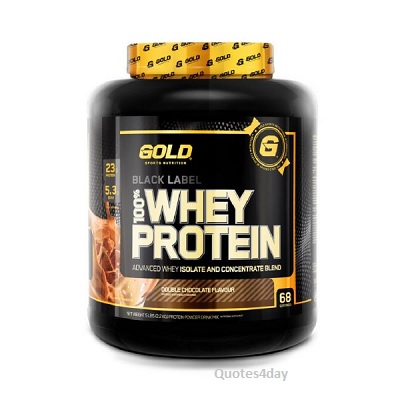While doing this or that kind of sport, sooner or later such a thought may arise: “But should I try sports nutrition …?”. And this is quite normal since its main task is to improve sports performance, speed up recovery processes, support the body, and more. No matter how strange it may seem, there are still people who believe that it is harmful and sports nutrition in general will not lead to anything good. Of course, the uncontrolled intake of various nutritional supplements can adversely affect the body, but if you strictly follow the manufacturer’s recommendations and delve a little into the topic of sports nutrition, then this will not happen.

Definition and Purpose of Sports Nutrition
Nutrition for athletes, fitness enthusiasts, and active lifestyles plays a huge role. After all, the effectiveness of classes and how quickly you will achieve your goals will depend on a properly composed diet. One more important point should be taken into account: the body of people who are actively involved in sports needs more nutrients and sometimes it is difficult to get enough of them from natural foods. This is where sports nutrition comes in. It contains the necessary amount of various nutrients, which will easily cover all the needs of the body.
Nutritional supplements are just an auxiliary tool and nothing more. Sports nutrition is usually taken for:
- Increase energy levels and performance in training;
- Providing the body with important micro and macro elements;
- Stimulation of muscle growth;
- Support for recovery processes;
- Getting rid of body fat, etc.
Well, if you have never been interested in sports nutrition before and have no idea how it happens and how it works, then this article is definitely for you!
We offer you to get acquainted with the most common types of food additives.
TOP 7 Most Popular Types of Sports Nutrition
If you are new to the world of sports nutrition and do not know much about it, we have prepared a summary and information about the most popular supplements.
Protein
Protein (protein) is, whatever one may say, the base of sports nutrition. Almost 80% of sports nutrition sales come from protein supplements. It is an essential macronutrient and performs many functions in the body, including the following:
- Building function. Proteins take part in the formation of all cellular structures and also provide them with comprehensive support. From this, it follows that this nutrient can create tissues (activate muscle growth) and restore them.
- Enzymatic activity. Enzymes are proteins that carry out thousands of biochemical reactions. They are essential for breathing, digestion, energy production, blood clotting, muscle contraction, nervous system function, and more.
- Management of biological processes. Some types of hormones are proteins and perform signaling functions. What does it mean? These macronutrients are capable of transmitting signals to regulate biological processes between cells, organs, and tissues.
- PH support. Protein plays a leading role in the regulation of acids in the blood and other body fluids.
- Strengthening immunity. The protein is involved in the formation of antibodies to fight viruses, bacteria, and other infections.
- Transport of nutrients. Yes, yes, and the squirrels succeeded here. They are involved in the delivery of nutrients from cell to cell and throughout the body.
This is only part of the processes that the protein closes on itself. The rest just don’t make sense.
Now you need to deal with the types of protein that you can find on store shelves. Let’s go over each of them briefly.
Whey Protein
It is made from milk whey, hence the name. It is considered a complete protein because it contains all nine essential amino acids. In turn, whey protein is divided into three types:
- Concentrate – contains a low amount of fat and lactose. The protein content can range from 65% to 75%. A high-quality concentrate can have up to 80% protein.
- Isolate – undergoes additional processing to remove fats and lactose. As a rule, it contains at least 90% protein.
- Hydrolyzate – often referred to as the “digested” form of whey protein, this is because it has already undergone partial hydrolysis. Thus, the body absorbs it much faster. The protein concentration in hydrolyzed whey reaches 99%, which is very good.

The cost of a dietary supplement will directly depend on the type of whey protein you choose.
Casein Protein (Casein)
It is also a milk protein and contains all nine amino acids. Its main difference from whey protein is the duration of assimilation. Casein is absorbed gradually and for a long time (4 hours minimum). It is also often referred to as a nighttime protein because due to the long absorption, it is most often taken before bedtime. But that doesn’t make it ineffective or otherwise. Casein protein is fully functional.
Egg protein
It’s no secret that eggs are a great source of high-quality protein, which is why the manufacturers decided to make a dietary supplement out of it. Egg protein is saturated with all the essential amino acids and is highly effective. It contains no fats and carbohydrates, and also no lactose.
Beef protein
This is probably one of the most controversial types of protein powder supplements. Yes, it does not contain lactose and contains a complete amino acid profile, but at the same time, bioavailability to everyone is lower than that of the same whey protein.
However, not everything is so rosy. If you think that beef protein is made from pure meat, then we hasten to disappoint you. It is made from the hooves, ears, ligaments, and skins of cattle. And this is not at all what the end consumer expects. Therefore, to buy this type of protein or not – the choice is yours.
Vegetable protein
If for one reason or another, you do not eat animal products, in this case, vegetable protein will be an ideal option. But here one important fact must be taken into account – this protein has a rather meager amino acid profile.

The only exception is soy protein, which does not have an amino acid imbalance.
Gainer
Gainer is a dietary supplement consisting of proteins and carbohydrates. It is recommended to take it to athletes who have difficulty gaining muscle mass. If you have no problems with this, then it is better to refuse this sports nutrition, as the risk of gaining extra pounds increases.
Interesting on the topic 10 Effective Easy Exercises for Stomach and Side Fat
As a rule, the percentage of proteins and carbohydrates can be equal to 50/50 and also be 80/20, where most of the composition is occupied by carbohydrates. But do not be afraid of carbohydrates, as they are an integral part of a balanced diet.
Carbohydrates are of two types – simple and complex.
- Simple – absorbed almost immediately and are a quick source of energy. But it is the abuse of them that causes excess weight.
- Difficult – replenish the body with energy for a long time and does not lead to the appearance of extra centimeters at the waist.
The sources of carbohydrates in gainers can be different, so the cheaper the product, the more likely it is to find simple carbohydrates in their composition.
How does a gainer work?
- Provides energy for a productive workout;
- Supports muscle growth;
- Helps you recover faster after exercise.
It is recommended to take a dietary supplement 30-60 minutes before the start of a workout and immediately after it. Thus, you get the necessary energy for active physical activity, and after classes close the protein-carbohydrate window.
Creatine
Creatine is a nutritional supplement that is designed to increase strength, performance, and muscle growth. It is quite popular among experienced athletes and bodybuilders.
Some people claim that creatine is not safe and has a huge number of side effects. However, research suggests otherwise. This amino acid is one of the most proven and well-studied. Its safety has been confirmed by clinical trials.
Creatine supplements work like this:
- Increased physical activity;
- Stimulates the synthesis of anabolic hormones necessary for mass gain;
- Increases cell hydration, which indirectly affects muscle growth;
- Creatine prevents protein breakdown (catabolism);
- The level of myostatin decreases – a protein that prevents and slows down the growth of muscle tissue.
In addition, creatine is often used to treat certain brain diseases, neuromuscular pathologies, congestive heart failure, and more. This once again emphasizes the safety of dietary supplements based on it.
Amino acids
Amino acids are the building blocks of proteins. They are needed for many reactions that take place in the human body. All amino acids are divided into two types:
- Interchangeable – can be independently produced in the body;
- Irreplaceable – they can only be obtained from food.
It essential amino acids that are very important for a person since their deficiency can adversely affect health. There are nine amino acids that we can only get from outside:
- Histidine – stimulates the production of histamine, which plays a leading role in the immune response, digestion, sexual function, and more.
- Isoleucine – takes part in muscle metabolism and hemoglobin production, regulates blood sugar levels, and increases energy potential.
- Leucine – increases the production of protein and growth hormone, and is also responsible for the restoration of muscle tissue. In addition, leucine stabilizes blood glucose levels and speeds up the healing process of wounds.
- Lysine – is needed for the synthesis of several hormones and enzymes, the absorption of calcium, and an increase in energy levels.
- Methionine – supports metabolism, promotes detoxification, and activates tissue growth. Methionine helps the body to better absorb minerals, which are essential for the implementation of the most important functions in the body.
- Phenylalanine – is necessary for the production of dopamine, adrenaline, and norepinephrine. Phenylalanine is also important for the production of other amino acids.
- Threonine – is the main part of structural proteins (collagen, elastin), and is needed for lipid metabolism and the immune system.
- Tryptophan – regulates the balance of nitrogen in the body and supports the production of serotonin.
- Valine – is essential for muscle growth, tissue regeneration, and increased energy.
Today, in various nutritional supplements, you can find the presence of one or another amino acid, as well as separately purchase the BCAA complex, which is so popular among athletes. It includes leucine, isoleucine, and valine, which play a critical role in mass gain and recovery after exercise.
Fat burners
Fat burners are dietary supplements designed to help you lose weight quickly. They can be either natural or synthetic. Fat burners are quite an effective tool for those who want to lose weight quickly. But there is one “but” here – these bio-additives work only in conjunction with physical activity. They speed up the metabolism, stimulate the nervous system, and increase energy. After drinking a fat burner and falling on the bed to watch your favorite series, do not expect instant weight loss. There will be no miracle, for this, you need at least a little activity.
Please note that if you have health problems and chronic diseases, you should refuse to take fat burners. Better consult with your doctor.
Isotonics
During active training, we lose a lot of fluid through sweat, which is why it is so important not to forget about the drinking regimen. And the best solution in this situation will be isotonic. This drink contains the optimal composition of salts. It may also contain carbohydrates, vitamins, and fat burners.
Isotonics work as follows:
- Increase endurance during long workouts;
- Quench thirst well and prevent blood clotting;
- The minerals-electrolytes included in the composition support the transmission of nerve impulses;
- Replenish the body with energy.
At first, it may seem that this is not a very serious sports nutrition. But, believe me, he knows how to surprise.
Pre-workout complex
And our TOP of the most popular dietary supplements is completed by pre-workouts. This type of sports nutrition is chosen by those who want to increase the productivity and effectiveness of training. The pre-workout complex provides an additional boost of energy, stimulates the nervous system, increases strength and endurance, supports muscle function, and helps to get rid of body fat.
Often in the composition of the pre-workout, you can find various amino acids, caffeine, herbal ingredients, and more. As you may have guessed, this sports nutrition should be taken immediately before training.
This is a voluminous reviewer turned out … But we hope that this article was not only as interesting as possible but also informative for those who first decided to get to know sports nutrition better.
Sports nutrition is a great way to take the training process to a higher level and achieve the desired results. But at the same time, do not forget that everything should be in moderation and you need to use nutritional supplements responsibly.


